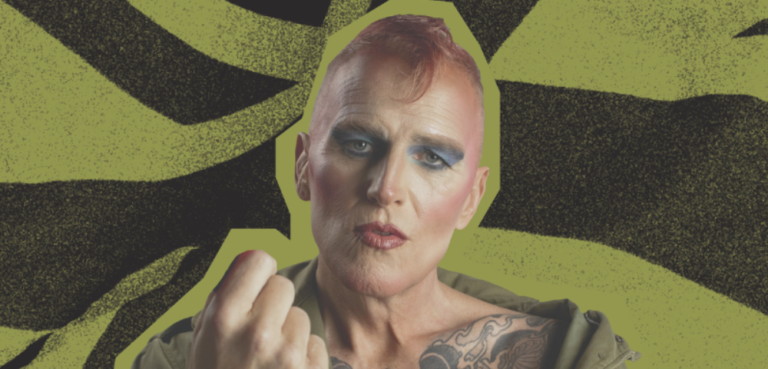
Intersex activist questions German law reform

 New legislation in Germany allowing parents to leave a child’s sex unassigned on their birth certificates has been praised around the world as an achievement for intersex rights, but Australian advocate Morgan Carpenter is concerned the legislation won’t do anything to help stop infant interventions which includes “genital mutilation”
New legislation in Germany allowing parents to leave a child’s sex unassigned on their birth certificates has been praised around the world as an achievement for intersex rights, but Australian advocate Morgan Carpenter is concerned the legislation won’t do anything to help stop infant interventions which includes “genital mutilation”
In effect from 1 November, the law aims to create legal recognition for intersex infants by allowing German parents to leave a blank space on the birth certificate when indicating a child’s biological sex.
Although the law has been framed as a way to address human rights concerns over intersex infants being forced into a binary definition of sex, Organisation Intersex International (OII) Australia has cautioned against seeing this as a way to address infant surgical intervention.
Recently the subject of an Australian Senate inquiry, the practise involves doctors recommending and performing “normalising” surgery on intersex infants to make them either “male” or “female”. These surgeries are widely condemned by advocacy groups, and have been characterised as genital mutilation.
OII Australia President Morgan Carpenter told the Star Observer the German law is not a solution to the needs of intersex infants, despite being characterised this way by many inside Germany and internationally.
Carpenter pointed to similar laws in New Zealand allowing infant sex to be recorded as “indeterminate”, arguing evidence did not indicate a change in doctors recommending infant genital surgery.
Evidence presented to the October Australian Senate Inquiry into forced sterilisation of intersex people showed New Zealand doctors encouraged surgery on some intersex infants younger than 6 months at higher rates than most Australian doctors.
Carpenter also said the German laws could increase discrimination against intersex people in Germany in the absence of equivalent anti-discrimination law to Australia’s Sex Discrimination Amendment Bill, which specifically protects intersex people.
LGBTI advocacy group ILGA Europe echoed OII Australia’s position, arguing the new law will likely have little impact on infant surgical intervention.
“This is an interesting move but it doesn’t go far enough,” said ILGA’s policy director Silvan Agius.
“Unnecessary surgeries will likely continue in Germany with devastating consequences…we live in a world where having a baby classified as ‘other’ is still considered undesirable.”
German legal experts have also raised concerns the move could create bureaucratic problems for people without an assigned gender travelling abroad, suggesting the country follow Australia’s example of an “X” option for passports.
Australia introduced “X” to designate a third sex on passports in late 2012.









